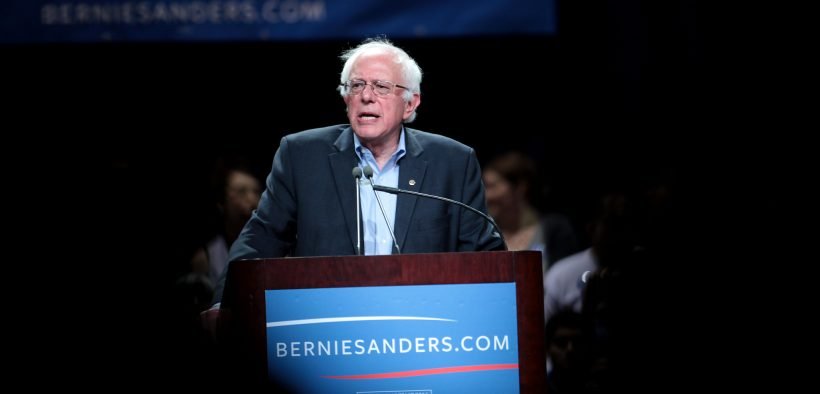Behind Bernie Sanders Effort to Curb Executive Pay

“It is unjust and unacceptable that the CEOs of major corporations are making an average of 287 times more than their average worker.”
Sen. Bernie Sanders, D-Vt., wants to tackle income inequality and to do so he introduced a bill in November written to combat skyrocketing executive pay. The income gap between CEOs and their company’s average worker has risen from 20-to-1 in 1965 to 278-to-1 in 2018, according to the Economic Policy Institute.
Sanders’ Tax Excessive CEO Pay Act is his proposed solution to combating the rising ratio that divides the upper echelon of corporations from lower-tier employees. To encourage a more-equal income distribution, the bill imposes a tax increase on corporations, beginning with companies earning $100 million per year with CEOs taking home 50 times their median employees.
The bill was also put forward in the House of Representatives by Rep. Barbara Lee, D-Cali.
US Leads the World with Pay Gap
“It is unjust and unacceptable that the CEOs of major corporations are making an average of 287 times more than their average worker — with some CEOs making upwards of 1,000 times more,” Lee said in a press release.
Since businesses can afford lucrative CEO salaries and benefits, Lee and Sanders argue they can also bear the cost of raising worker compensation. An Economic Policy Institute study found average CEO pay to be $17.2 million. Further underscoring the divide in compensation, in the 40-year period from 1978 to 2018, CEO pay has increased by 1,007.5 percent, compared to an increase of 11.9 percent for the average worker.
“All around the world today, large, successful businesses manage to be profitable while treating their workers with dignity and not handing out obscene pay packages to their CEOs.” Sanders argued. “If America’s corporate boards can’t understand the absurdity of paying their CEO friends — in one year — more than their workers will earn in a lifetime, then the Tax Excessive CEO Pay Act will help them figure it out.”
Compared to some European nations, the gap between CEO and worker pay rate in the US is significantly higher, according to a report by the BBC. The ratio is 171-to-1 in the Netherlands, 152 in Switzerland, 143 in Spain, and 136 in Germany. The UK is the closest European country to America with a ratio of 201-to-1.
The neighboring states of Canada and Mexico have wage ratios of 149 and 62-to-1, respectively.
Criticism of the Tax Excessive CEO Pay Act
Not everyone is on board with Sanders’ and Lee’s Tax Excessive CEO Pay Act. In an article for Forbes, Howard Gleckman argued simply increasing taxes may not be the solution. Businesses may use tax-deductible equity, stock options, and other manners of compensation to skirt paying more taxes. Furthermore, the bill could unfairly affect “retailers or other business[es] with large numbers of low-skilled, low pay workers” Gleckman wrote.
Instead of reducing CEO compensation, Gleckman countered that they may simply reduce their low-income workforce. Alternatively, US businesses may simply decide the extra taxes are worth it and continue the practice of providing lucrative salaries and bonuses to their top brass.
Dan Hannan at the Washington Examiner argues CEOs are increasingly tied to the valuations of the companies they lead. According to an article by Hannan, Angela Ahrendts’ resignation from Burberry caused the company to lose $700 million of stock value when she accepted a C-level position at Apple. In Steve Jobs’ health battles, shareholders clamored for more information on the ailing executive’s health, contending that it was material to the company’s performance.
The Securities Exchange Commission even investigated Jobs’ disclosure, or lack thereof, twice before ultimately deciding to take no action, according to Stanford research by David F. Larcker and Brian Tayan.
Jobs eventually authored a press release detailing some of his heath issues before ending it with, “So now I’ve said more than I wanted to say, and all that I am going to say about this.”
Executive pay at American corporations is, by all metrics, continuing to trend upward while worker pay remains comparatively flat. Arguments have been made on both sides, but few solutions have been put forward, perhaps out of fear of the dreaded “S” word — socialism.
Sanders, a self-proclaimed democratic-socialist, introduced the Tax Excessive CEO Pay Act as a potential solution, but it is highly unlikely to pass the Republican-controlled Senate due to conservative aversion to restricting capitalism.













